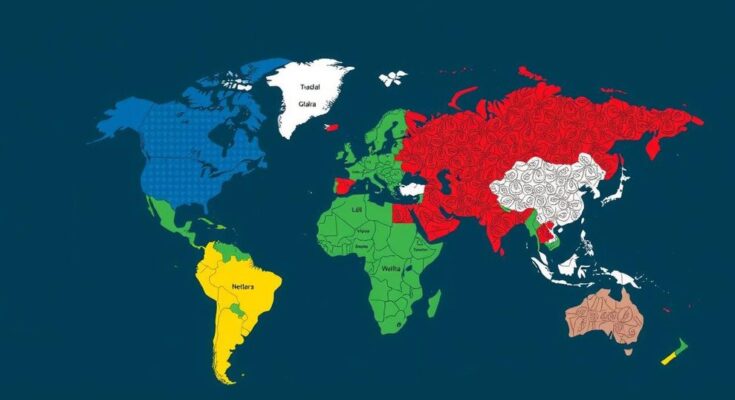The Commonwealth Heads of Government Meeting in Samoa is focusing on climate change and reparations for the transatlantic slave trade. Discussions involve leaders from 56 nations, including the impact of rising sea levels on small island states and the push for reparations from Britain, amidst varying perspectives on historical accountability.
The Commonwealth Heads of Government Meeting (CHOGM) commenced in Samoa, featuring discussions amongst leaders from 56 nations, alongside Britain’s King Charles. An overarching focus of the summit lies in addressing critical issues such as climate change and the prospect of reparations related to Britain’s participation in the transatlantic slave trade. With a significant portion of Commonwealth nations being small island states, the threat posed by rising sea levels due to climate change is of paramount concern. United Nations Secretary-General Antonio Guterres highlighted that ocean temperatures in the Pacific Islands rise at significantly higher rates than global averages, further intensifying the vulnerability of these populations. Australian Foreign Minister Penny Wong emphasized, “Climate change is an existential threat. It is the number one national security threat. It is the number one economic threat to the peoples of the Pacific and to many members of the Commonwealth.” In addition to climate discussions, the topic of reparations for transatlantic slavery has emerged strongly, particularly advocated by countries within the Caribbean Community (CARICOM) and the African Union. British Prime Minister Kier Starmer remarked that while the UK will not formally address reparations at CHOGM, there exists a willingness to engage in discussions with member leaders who raise the subject. CARICOM has initiated a reparations commission aiming to engage former colonial powers, such as the UK, France, and Portugal, in dialogue. Kingsley Abbott, director of the University of London’s Institute of Commonwealth Studies, noted that opportunities for discussion on reparations are vital, stating, “It is a priority for many of the Commonwealth’s member countries and whenever those affected by atrocities ask to talk, there should always be a willingness to sit down and listen.” Historical context indicates that from the 15th to the 19th century, over 12.5 million Africans were forcibly transported and enslaved, with enduring impacts that resonate in contemporary discussions about racial inequality.
The Commonwealth is an intergovernmental organization composed of 56 member states, many of which are former territories of the British Empire. The organization holds biennial meetings, such as CHOGM, where leaders discuss various pressing global issues. In recent years, the legacies of colonialism, particularly related to slavery and its enduring socio-economic ramifications, have prompted renewed calls for reparations. Countries in the Caribbean and Africa have increasingly vocalized their concerns and demands regarding reparations, linking historical injustices to current racial disparities and socio-economic challenges. Furthermore, climate change poses a severe threat, especially to small island nations that are at risk from rising sea levels, making these discussions increasingly critical.
In summary, the ongoing CHOGM in Samoa represents a significant platform for addressing pressing issues such as climate change and reparations for historical injustices stemming from the transatlantic slave trade. With heightened awareness of the impacts of climate change and persistent calls for reparations from member nations, the dialogues held at this summit could shape international policy and foster greater cooperation among Commonwealth states. The commitment from leaders to engage in these discussions will be crucial in addressing both present and historical challenges that confront these nations.
Original Source: www.swissinfo.ch




